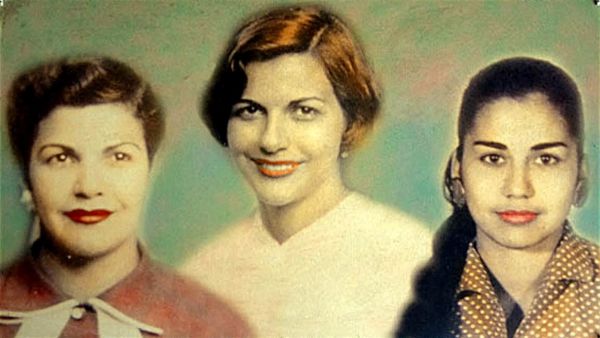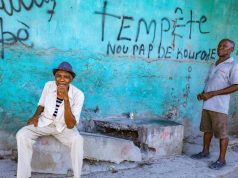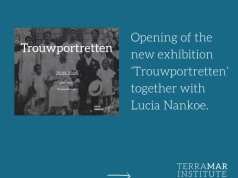

[Many thanks to author Suzanne Dracius for reminding us of this important date.] Today is 25 November, designated by UNESCO as the International Day for the Elimination of Violence against Women, aiming to raise awareness about the different forms of violence women suffer worldwide, including physical, sexual, psychological, and domestic violence. The article “The Significance of November 25: Eliminating Violence Against Women” (ESENDOM) by Emmanuel Espinal and Nelson Santana offers the historical background to this designation of a day for remembrance and action. [Shown above: Dominican sisters Patria, Minerva, and María Teresa Mirabal, aka “Las Mariposas”.]
Every November 25th, the Dominican Republic faces an unflinching mirror. It is not just another date on the calendar; it was born of pain, courage, and a historical debt. The world marks the International Day for the Elimination of Violence against Women in honor of three Dominican women—Patria, Minerva, and María Teresa Mirabal—murdered by the Trujillo dictatorship in 1960.
In 1999, the United Nations formalized that tribute, recognizing that the crime against “Las Mariposas” was political but also misogynistic—a universal warning about what happens when power claims ownership over women’s bodies and voices.
ESENDOM joins with a special 16-part series—one woman, one story, each day—to name, remember, and demand justice. From Mamá Tingó (Florinda Soriano Muñoz), the peasant leader murdered for defending land rights, to Lucrecia Pérez Matos, a Dominican migrant killed in Spain in a hate crime, and more recent cases that stirred consciences, such as Emely Peguero. These are not statistics; they are lives, families, and communities marked by femicides, assaults, impunity, and institutional neglect. Each installment rescues from oblivion a woman whose story demands justice.
To speak of November 25th is to speak of them—and of all women. The Mirabal sisters did not die only for opposing Trujillo; they died for daring to be free women in a country designed to obey a dictator. Remembering them is not just repeating their names—it is understanding what they represented and what they continue to represent for the country, the region, and the Dominican community abroad.
The Butterflies: When Dignity Organizes
The four Mirabal sisters grew up in Ojo de Agua, Salcedo, in a family shaped by education and social conscience. In an era when fear was the official language, their homes did not display the dictator’s portrait: a small but telling act. Each found her path to resistance. Minerva, the most political and radical, helped ignite the June 14th Movement with Manolo Tavárez Justo. María Teresa followed from the university and youthful conviction. Patria, less visible on the front lines, offered her home, her faith, and her life to the cause. Dedé, the sister who survived, did not join the underground movement but carried a near-biblical mission afterward: to preserve memory, raise the children of her murdered sisters, and turn the family home into a living museum and archive.
Minerva embodied a Dominican dream: a professional, brave, forthright woman. She rejected Trujillo’s sexual advances, and that “no” carried the weight of the State. Her university record was smeared, her law license blocked, her family harassed. She did not yield. In a country where the dictator believed he owned women, Minerva defended the revolutionary idea that a woman is not territory to be occupied. Here begins the deeper meaning of November 25: it is not only about physical violence; violence is any structure that reduces a woman to obedience, silence, or a trophy.
The Crime that Changed History
On November 25, 1960, the three sisters—along with their driver Rufino de la Cruz—were returning from visiting their imprisoned husbands. The dictatorship intercepted them on the highway, beat them, strangled them, and left their bodies inside their jeep, pushed down a mountain to stage an accident. The message was clear: this is how a woman ends when she steps out of line.
But Trujillo miscalculated. The crime had the opposite effect: outrage swelled at home and abroad, and six months later the dictator was executed. The Mirabal sisters shook the regime’s machismo and showed that fear is not invincible when dignity gets organized.
November 25 is not only remembrance; it is a turning point. It marks the day when the state’s patriarchal violence was laid bare to the world. Since then, the date has opened the “16 Days of Activism against Gender-Based Violence,” through December 10, Human Rights Day. The logic is blunt: without safe lives for women, there is no full democracy and no real human rights. [. . .]
For full article, see https://esendom.com/huellas-de-la-historia/significance-of-november-25-mirabal-sisters
Also see https://www.unesco.org/en/days/elimination-violence-against-women, https://www.fcbarcelona.com/en/news/4408328/fc-barcelona-observes-international-day-for-the-elimination-of-violence-against-women/amp, and https://eldia.com.do/las-hermanas-mirabal-emprendieron-su-vuelo-hacia-la-eternidad-pero-su-legado-sigue-presente-entre-los-dominicanos/
For article in French, see https://www.egalite-femmes-hommes.gouv.fr/25-novembre-2025-journee-internationale-pour-lelimination-de-la-violence-legard-des-femmes?Q
[Many thanks to author Suzanne Dracius for reminding us of this important date.] Today is 25 November, designated by UNESCO as the International Day for the Elimination of Violence against Women, aiming to raise awareness about the different forms of violence women suffer worldwide, including physical, sexual, psychological, and domestic violence. The article “The Significance of






